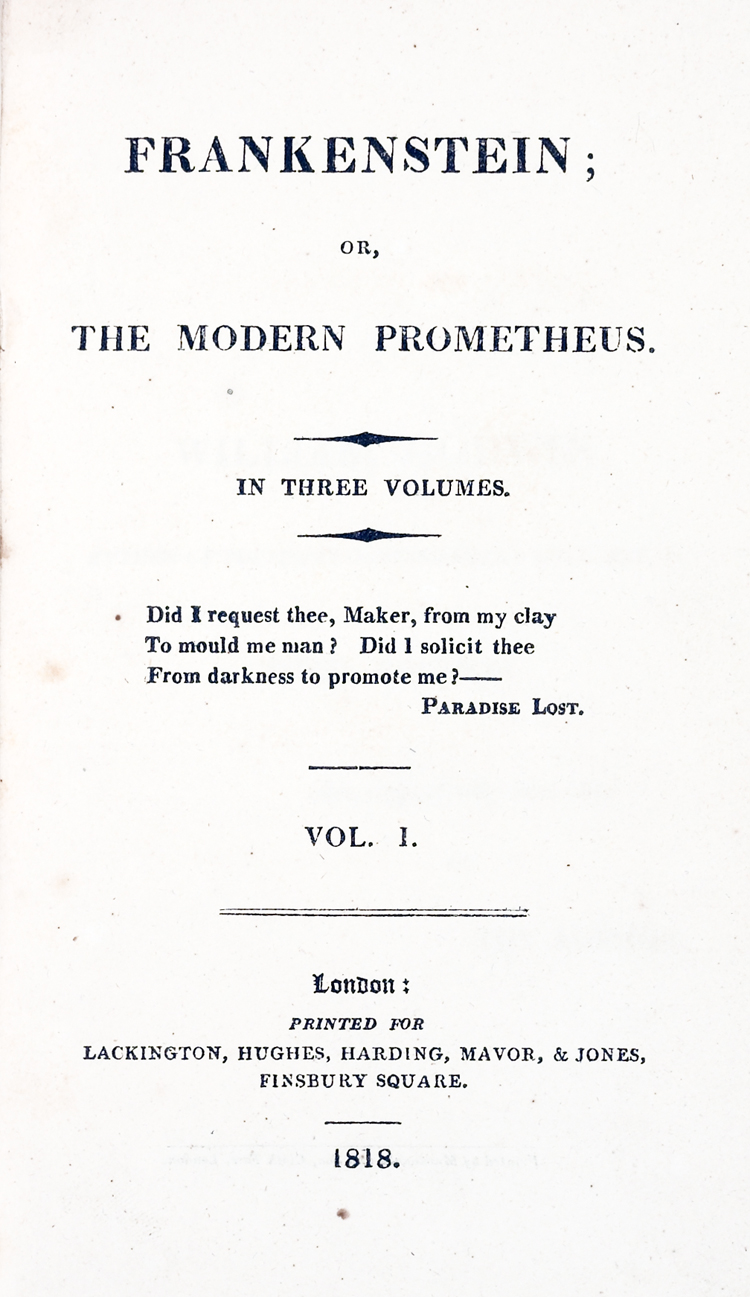
On the title page of Frankenstein I noticed that there is a excerpt from Paradise Lost. It says,
"Did I request thee, Maker, from my clay
To mould me Man, did I solicit theeFrom darkness to promote me?"
This is very though provoking, and is perfect for the novel. I think that is applies to the novel because the monster is trying to be good, but is shunned by his creator, which eventually causing the monster to hate Victor for abandoning him and making his appearance hideous. Also, Paradise Lost in mentioned in Frankenstein more that once. The monster finds the book in a suitcase in he woods and Shelley uses excerpts from the novel in Frankenstein. Do you think that Paradise Lost influenced Mary Shelley in her writings? What do you think the excerpt means?






